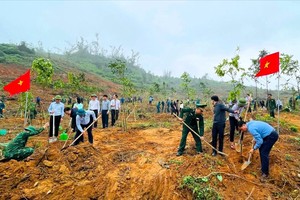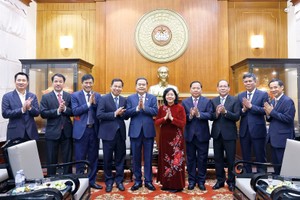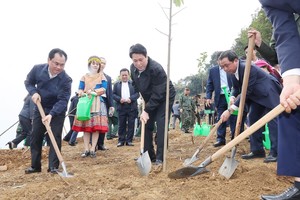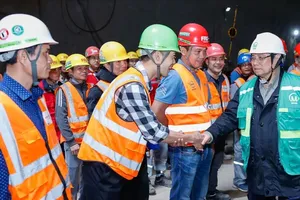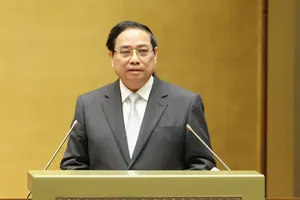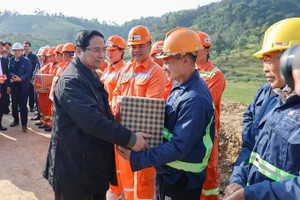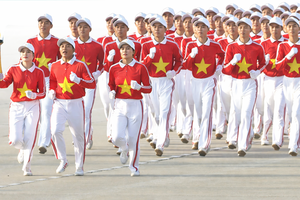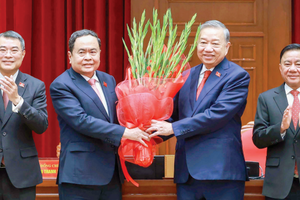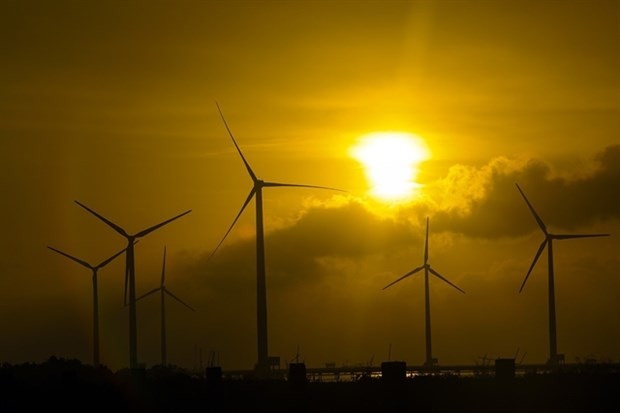
The Directorate for Standards, Metrology and Quality under the Ministry of Science and Technology has issued International Standardisation Organisation (ISO) standards regarding climate change adaption as a practical action to realise Vietnam’s net zero commitments.
 |
A corner of Bac Lieu Wind Power Plant in the southern province of Bac Lieu (Photo: VNA) |
The standards named TCVN ISO 14090:2020 contain principles, requirements and guidelines to instruct organizations and sectors to adapt to climate change. They can be applied to every organisation of all sizes, local, regional, international, and at all types of business, corporation, sector, and natural resource manager.
The standards can assist in the development of climate change adaptation standards for specific sectors or factors.
The standards were issued after Vietnam made a commitment to net zero emissions by 2050. The introduction of the standards on climate change adaptation is considered one of the practical actions to achieve the commitment.
At the 27th Conference of the Parties to the United Nations Framework Convention on Climate Change (COP27), held in Sharm El-Sheikh, Egypt, on 11 November 2022, the International Organization for Standardization announced a new global guide that includes guiding principles for achieving net-zero.
Under the guidelines, reducing emissions at the source is believed to be the most effective way to achieve net-zero.
To do that, countries are advised to improve energy efficiency, switch to renewable energy sources and innovate processes to reduce waste.
For emissions that cannot be eliminated, carbon offsetting is a possible solution. They involve investing in projects that remove or reduce greenhouse gases in the atmosphere.
The guidelines say that the involvement of stakeholders - employees, customers, investors and the community is key to the successful implementation of a net-zero strategy.
Right after the guide was issued, the directorate disseminated it to organisations and businesses to help them identify and manage risks, as well as seize all opportunities that climate change can bring.
According to a United Nations report, Vietnam ranks 6th among the countries suffering the most from extreme weather. Over the past 20 years, Vietnam has suffered hundreds of natural disasters causing loss of human life and materials.
Vietnam's proactive commitment of net zero to the world not only helps reduce the risk of catastrophic climate change, extreme weather phenomena, and sea level rise, loss of biodiversity; disruption of food and water supplies, but also protects human health, promotes innovation and economic growth; enhances energy security; and conserves ecosystems and biodiversity.
